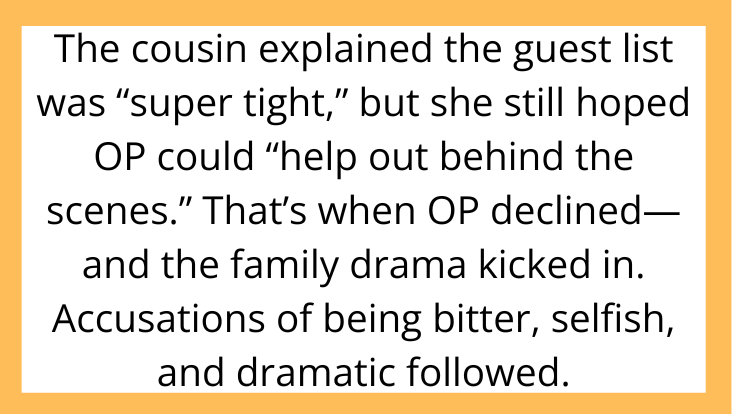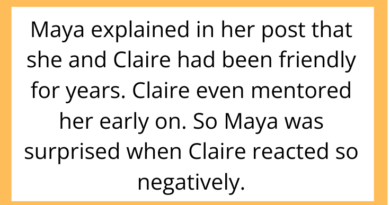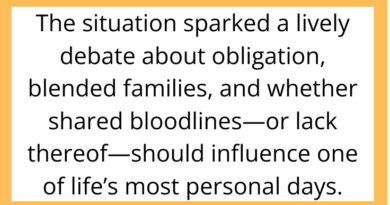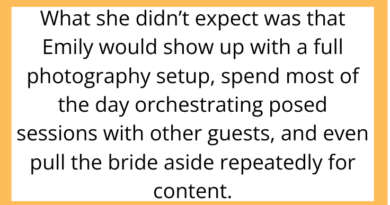AITAH for Refusing to Help My Cousin Plan Her Wedding Because She Didn’t Invite Me?
Weddings are often seen as joyful family occasions, but what happens when you’re asked to help plan one you’re not even invited to? That’s exactly what happened in a recent situation shared on Reddit’s r/AITAH—where one user refused to assist their cousin in planning her big day after discovering they weren’t on the guest list.
This sparked a heated debate about boundaries, family obligations, and whether help without recognition is truly expected.
Let’s dive into the scenario, weigh the perspectives, and explore where the line between kindness and self-respect really lies.
The Scenario: Planning Without a Seat at the Table

The original poster (OP) explained that their cousin had always treated them like a go-to helper. Whether it was baby showers, birthday parties, or family functions, OP often found themselves coordinating decorations, handling logistics, and making sure things ran smoothly—all unpaid, all unacknowledged.
So when the cousin got engaged, it was no surprise she reached out again—for “a little help” with wedding planning.
What was surprising? OP wasn’t invited to the wedding.
The cousin explained the guest list was “super tight,” but she still hoped OP could “help out behind the scenes.” That’s when OP declined—and the family drama kicked in. Accusations of being bitter, selfish, and dramatic followed. Now OP is left wondering: AITAH for saying no?
The Emotional Toll of One-Sided Giving

Being asked to contribute to a celebration you’re excluded from can feel like a slap in the face. It raises important emotional questions:
-
Am I being valued, or just used?
-
Is my labor appreciated, or expected?
-
Would I be asked if I didn’t say yes in the past?
For OP, this wasn’t just about a single event. It was the culmination of years of being the “helper,” never the guest of honor. That kind of pattern builds resentment—and rightfully so.
When Helping Becomes People-Pleasing

It’s natural to want to support family, but not when it comes at the cost of self-respect. If someone doesn’t consider you important enough to include, they probably shouldn’t rely on you for support.
Helping out of guilt or fear of judgment isn’t kindness—it’s obligation disguised as generosity. Setting boundaries is often mistaken for selfishness, but it’s actually how healthy relationships are built.
What Could Have Been Done Differently?
If the cousin truly valued OP’s help and relationship, several things could have made this request more respectful:
-
A real invitation: Even if limited, a symbolic invite or compromise would show appreciation.
-
Compensation: If OP’s help is truly needed, offering to pay for their time would shift the tone from entitled to professional.
-
Gratitude: A heartfelt acknowledgment can go a long way.
Instead, the request came with strings attached and zero inclusion, leaving OP to feel used.
How to Handle Family Requests Without Burning Bridges

If you’re in a similar situation, here are a few ways to respond with grace but firmness:
-
Acknowledge your history: “I’ve always been happy to help in the past…”
-
Set a clear boundary: “…but I’m not comfortable planning something I’m not a part of.”
-
Stand your ground: You don’t owe an apology for prioritizing your own emotional well-being.
-
Be polite but firm: You can say no kindly without opening the door to negotiation.
The key is remembering that no is a complete sentence—especially when your time, energy, and respect are on the line.
What the Internet Thinks
Reactions to OP’s story were mixed, but the overwhelming majority agreed: if someone doesn’t value your presence, they don’t deserve your unpaid labor.
Some pointed out that weddings are personal and complicated—but even then, the cousin could have handled it with more tact. Others cheered OP on for finally drawing a line in the sand after years of one-sided giving.
Final Thoughts: Respect Goes Both Ways
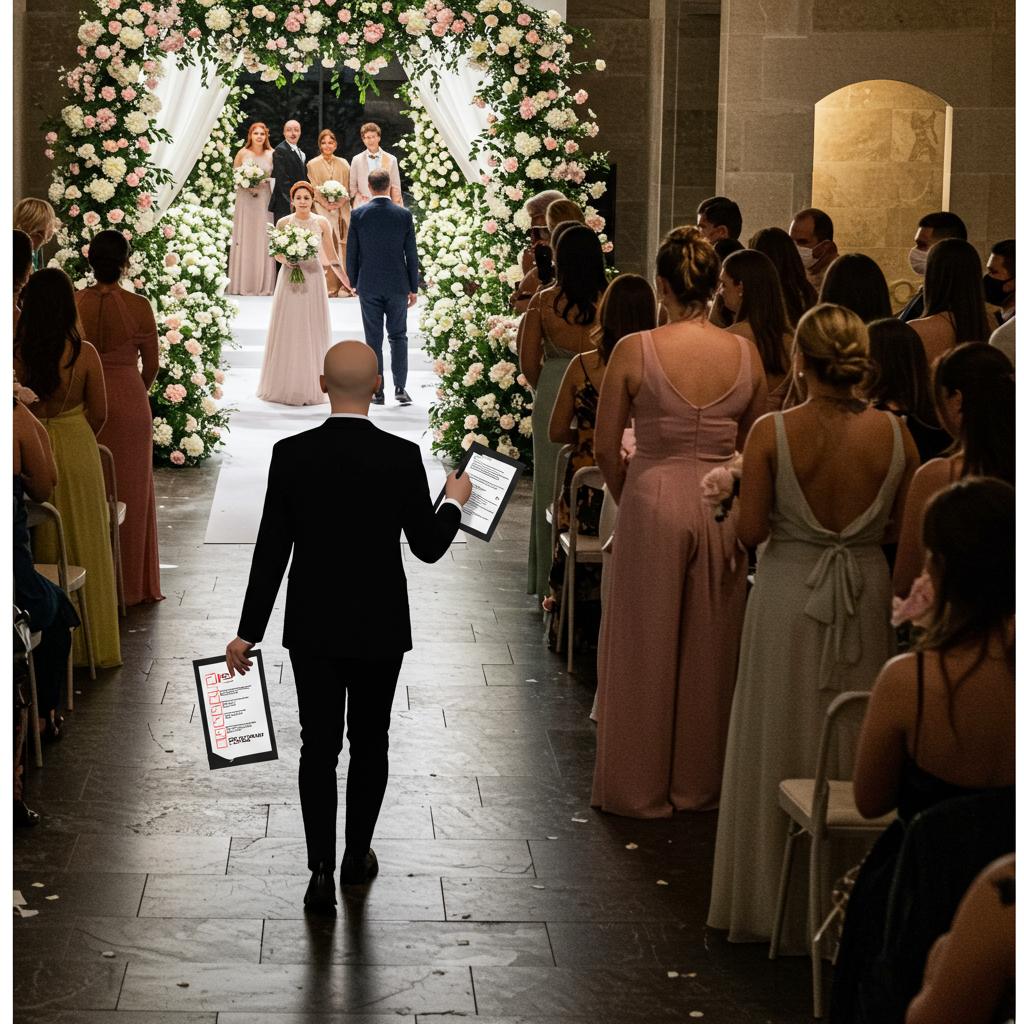
Refusing to help plan a wedding you’re not invited to doesn’t make you cruel or petty. It means you value your time and emotional energy—and expect others to do the same. Family ties should never be used to guilt someone into service, especially when appreciation is absent.
So, are you the bad guy for saying no? Not at all. You’re simply choosing dignity over blind duty.
